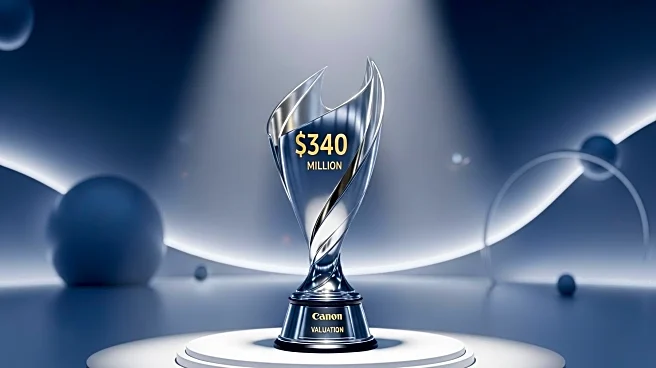What's Happening?
Unrivaled, a new sports league, has announced a valuation of $340 million after its inaugural season. The valuation follows a Series B investment round led by Bessemer Venture Partners, with contributions from Serena Ventures, Warner Bros. Discovery, and Trybe Ventures. Unrivaled's president, Alex Bazzell, stated that the league outperformed revenue expectations, nearly doubling its projected earnings. The league plans to use the funds to expand its venue space in Miami and enhance player facilities. Players in the league earn an average salary of $222,222 and receive equity in the league. The valuation reflects the league's growth strategy and commitment to athlete empowerment.
Why It's Important?
The valuation of Unrivaled at $340 million signifies the league's successful entry into the sports industry and its potential for future growth. The investment from high-profile entities and individuals underscores confidence in the league's business model and vision. By offering players equity, Unrivaled promotes athlete empowerment and aligns their interests with the league's success. The expansion of facilities and increased focus on athletes may enhance the league's competitiveness and attract more talent. The league's ability to nearly break even in its first season and project profitability in the second year highlights its strong financial foundation and strategic planning.
What's Next?
Unrivaled plans to continue its growth by expanding facilities and increasing its focus on athletes. The league may attract more investors and sponsors as it demonstrates financial stability and potential for profitability. The success of the inaugural season may lead to increased media coverage and viewership, further boosting the league's profile. As Unrivaled continues to innovate and empower athletes, it may set new standards in the sports industry and inspire similar models in other leagues.
Beyond the Headlines
Unrivaled's approach to athlete empowerment through equity ownership may influence other sports leagues to adopt similar practices. This model challenges traditional power dynamics in sports and promotes a more inclusive and equitable environment. The league's success could lead to broader discussions on athlete rights and compensation, potentially driving industry-wide changes.









